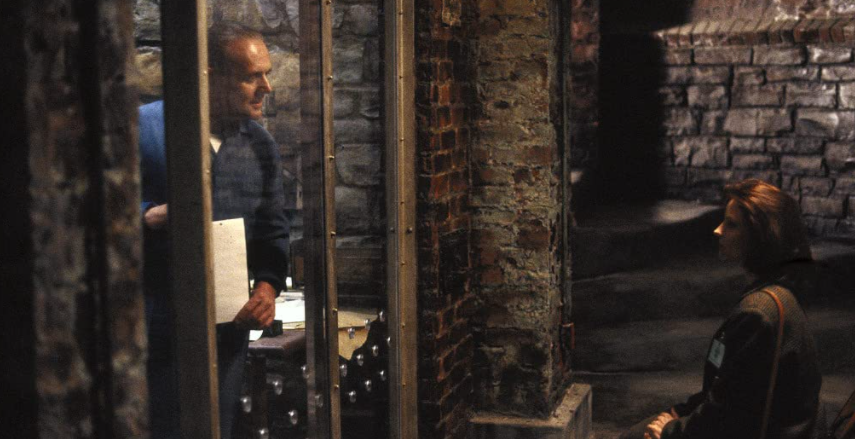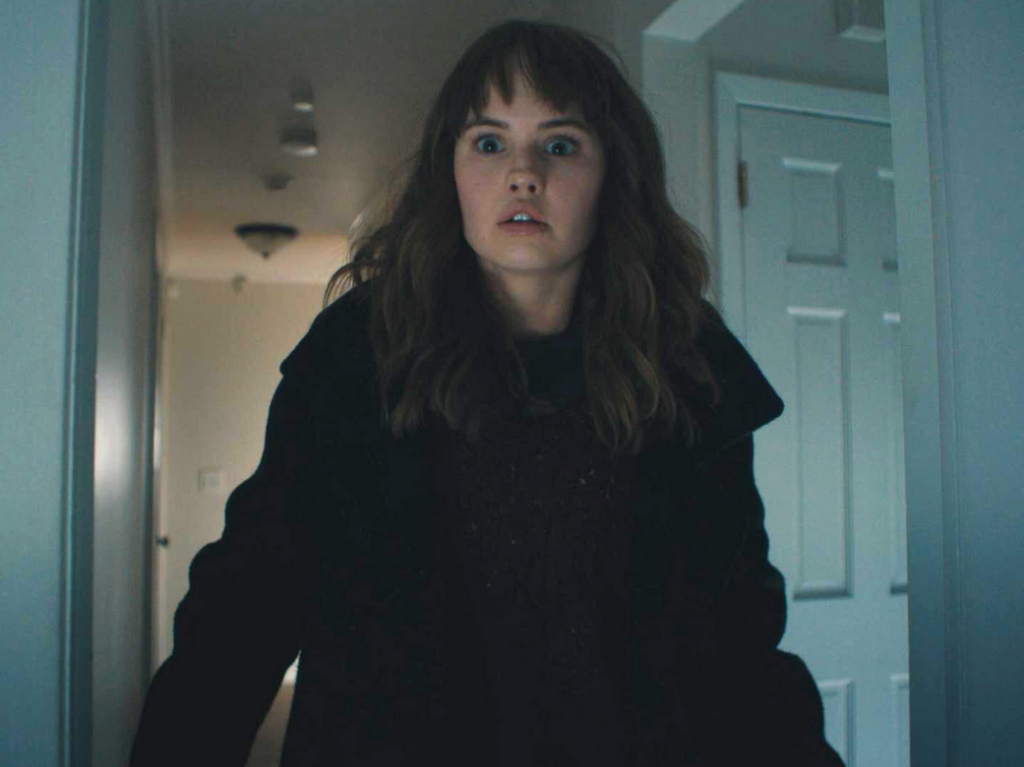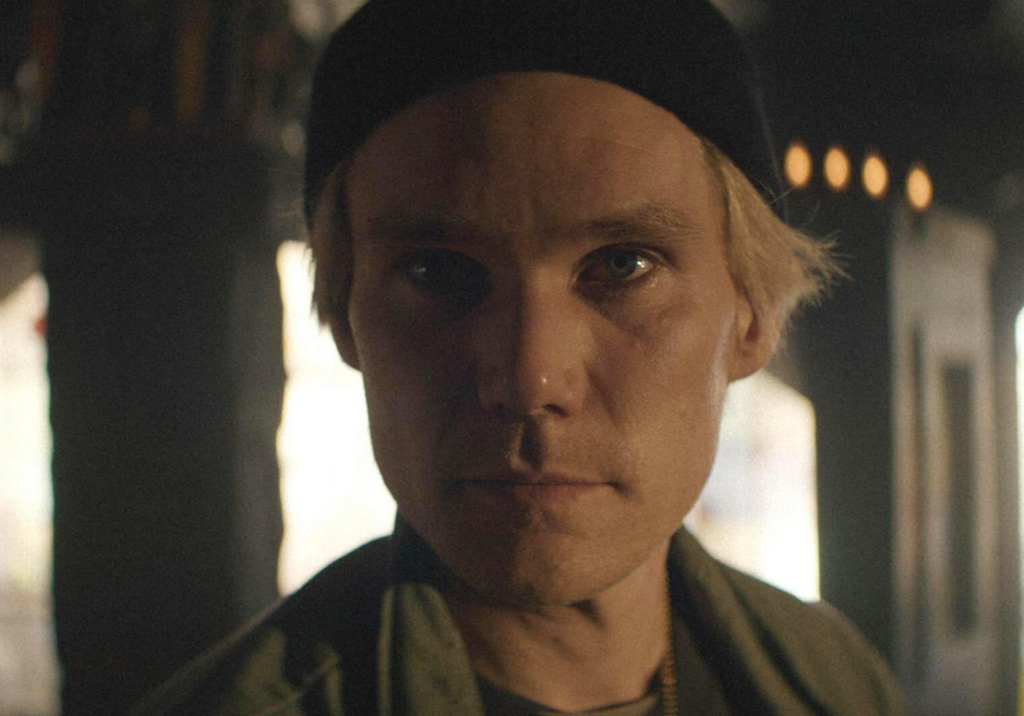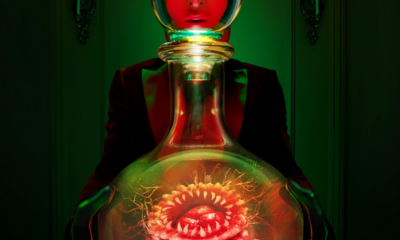Some characters are better when presented mysteriously, and such is definitely the case with Dr. Hannibal Lecter (Anthony Hopkins) in Jonathan Demme’s The Silence of the Lambs. Then again, he isn’t the only character harboring mysteries and secrets. In addition to the film’s other main serial killer, Jame “Buffalo Bill” Gumb (Ted Levine), you have FBI agent-in-training Clarice Starling (Jodie Foster). From the film’s beginning, we get a sense of her somewhat cold, distant, detached personality, and a lingering sense that she may have some mental ailment, something holding her back yet forcing her to prove herself.
Obviously, as The Silence of the Lambs progresses in its cat-and-mouse games, Dr. Lecter explores certain elements of her psyche, and there are no strong hints she is putting up a false front. Also, curiously, Hannibal seems to respect her for doing this, rather than sadistically toy with it as much as he could. This is, of course, in stark contrast with how he treats certain other characters, such as U.S. Senator Ruth Martin (Diane Baker), who is particularly victimized by his snide humor. So the question becomes: What is with Dr. Lecter’s decisions in this film? That’s as interesting as it is mysterious.
Dr. Lecter’s Perception as Shown in ‘The Silence of the Lambs’
Before he worked in Florence, Italy under the stolen identity of Dr. Fell in the film Hannibal, most of us knew Hannibal Lecter as an exceptionally unique inmate at the Baltimore State Hospital for the Criminally Insane (obviously, this title might now be deemed politically incorrect, but it flew back in 1991). We quite instantly recognize Lecter as a complex, intriguing, menacing character, who creepily never seems to blink and always has insight into the psychology of anyone in the room. Yes, he makes it clear to Clarice that he’s dangerous, but (in his own ways) tries to reassure her that he’s somehow a civilized murderous cannibal.
It’s a strange and volatile cocktail of character elements, and the average viewer surely wonders how many he has killed and fed from versus how many he has spared, and for what reasons. Also, because Clarice is difficult to read, we don’t quite know how vulnerable she really is to Dr. Lecter. We do know that, if he is unconvinced she is being genuine, he’s unlikely to assist her in any way. This already provides some insight into how his mind works. Like practically anyone else, Dr. Hannibal Lecter has some respect for honesty, integrity, and a willingness to engage one seriously and with fairness. At the same time, Lecter is aware of the dual nature of his engagements with Clarice, so he knows there must always be some level of deceit between the two of them, making The Silence of the Lambs a psychological game of cat-and-mouse.
Lecter’s More Refined Side vs. the Articulate, Brooding Brute Behind Glass
Because of the groundwork laid by The Silence of the Lambs, audiences came to know and respect who (and what) Dr. Lecter is. The events of this film helped us believe that, yes, Lecter can speak near-perfect Italian and is widely knowledgable about things like the history of Florence, Italy. We also recognize that, to a considerable degree, this veil of high culture and encyclopedic knowledge base allowed him to conceal his brutal side. In fact, we are given the impression that, if Clarice isn’t careful, she might think the stories she has heard about him are lies.
In a way, Clarice ends up lowering Dr. Lecter’s own defenses in the cat-and-mouse game, too. It seems he cannot approach her from any single angle, due to her often unassuming manner, yet she’s fully capable of challenging him if he is deceitful, showing a lack of fear and enough charisma to impress him. For example, Lecter blunders noticeably in his attempt to prevent her image from being sexless, as he improvises stories about her sexual encounters. She notes he is being crass, and he noticeably retreats from this psychological line of attack, or maybe even clumsy flirtation. It’s still interesting how this interpersonal mystery between the characters ties into solving the Buffalo Bill murders.
Would Dr. Lecter Kill Clarice?
I only vaguely remember the first time watching The Silence of the Lambs. However, I’m pretty sure I never assumed he planned to kill Starling by the movie’s end. Yes, he plans to make Dr. Frederick Chilton (Anthony Heald) into a special project, but there’s every reason to assume Dr. Lecter’s honest about not making her life a living hell. Quite simply, he likes her too much. It’s hard to say exactly why, but it doesn’t seem to be merely because he’s attracted to her, but he seems to respect her dedication.
Let’s face it, he also has the ability to pick and choose victims based on his own calculations, be they plain or esoteric to our own understandings. Although he is cold and calculating, he also seems capable of grasping things like empathy, at least intellectually. Thomas Harris-based films often play with this idea about killers being complex and evolving. As another example, Red Dragon‘s “Tooth Fairy” killer decides to torch his house to fake his own death (and ostensibly eliminate some evidence of his crimes).
In the end, all movies can be interpreted in any way we choose, with some ways being more plausible than others. In the universe firmly established in The Silence of the Lambs, it seems Clarice would have the luxury of safety from dying at his hands (or teeth). FBI Agent Jack Crawford (Scott Glenn) and Dr. Chilton are not wrong to call Lecter deadly, and that’s part of why his story has branched out well past 1991, and he has become one of the more complex horror icons out there.



 (2.5 / 5)
(2.5 / 5)

 (4 / 5)
(4 / 5)

 (3.5 / 5)
(3.5 / 5)





